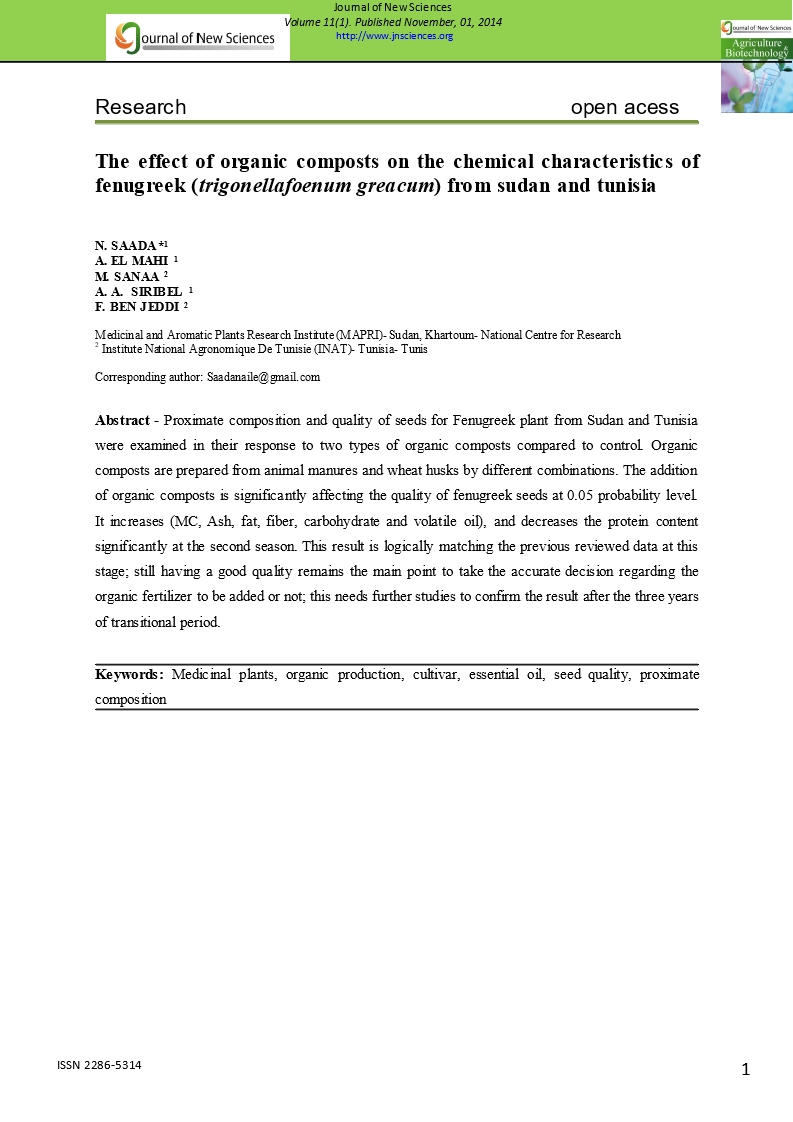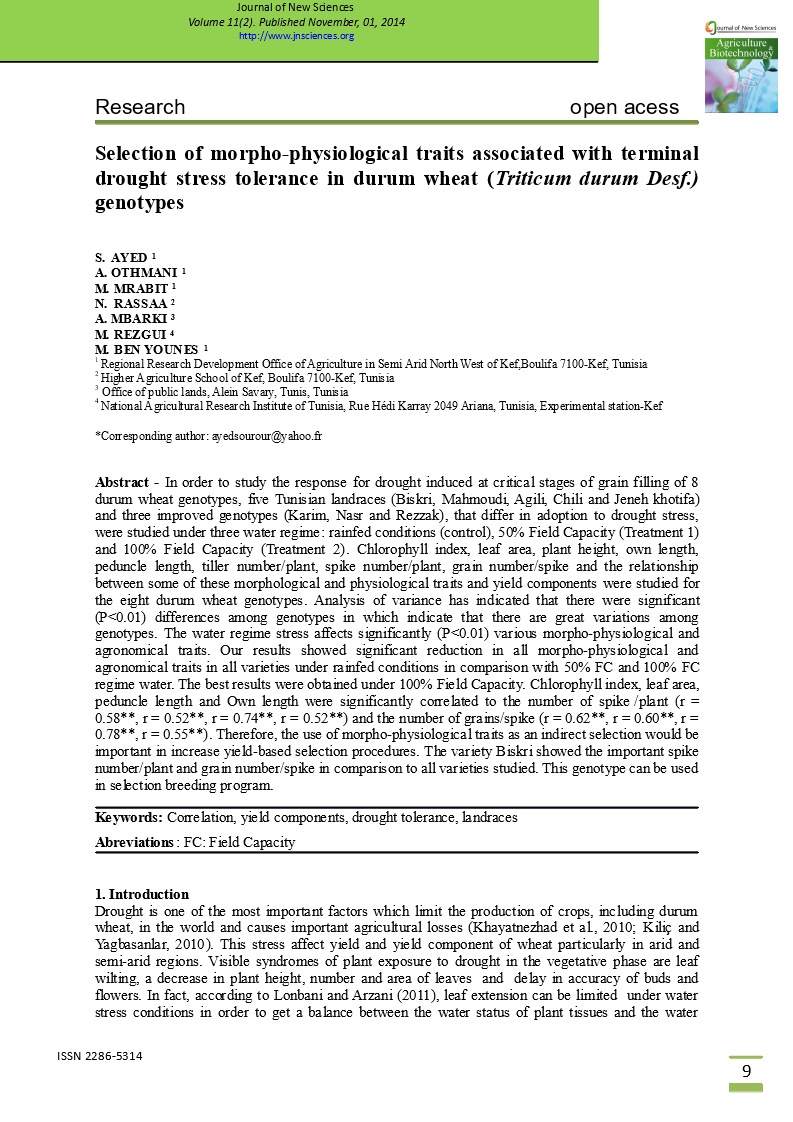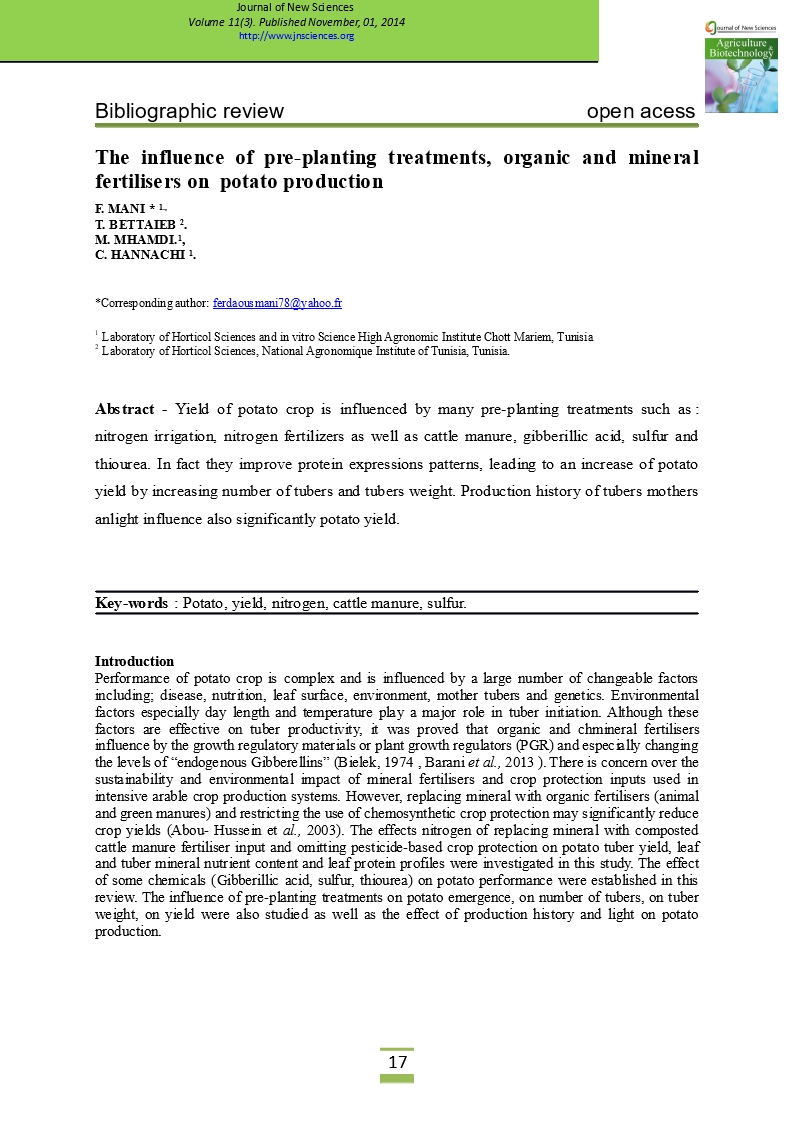- Category: Volume 11
- Hits: 8654
The effect of organic composts on the chemical characteristics of fenugreek (trigonellafoenum greacum) from sudan and tunisia

N. Saada*1
A. El Mahi 1
M. Sanaa 2
A. A. Siribel 1
F. Ben Jeddi 2
1 Medicinal and Aromatic Plants Research Institute (MAPRI)- Sudan, Khartoum- National Centre for Research
2 Institute National Agronomique De Tunisie (INAT)- Tunisia- Tunis
Abstract - Proximate composition and quality of seeds for Fenugreek plant from Sudan and Tunisia were examined in their response to two types of organic composts compared to control. Organic composts are prepared from animal manures and wheat husks by different combinations. The addition of organic composts is significantly affecting the quality of fenugreek seeds at 0.05 probability level. It increases (MC, Ash, fat, fiber, carbohydrate and volatile oil), and decreases the protein content significantly at the second season. This result is logically matching the previous reviewed data at this stage; still having a good quality remains the main point to take the accurate decision regarding the organic fertilizer to be added or not; this needs further studies to confirm the result after the three years of transitional period.
Keywords: Medicinal plants, organic production, cultivar, essential oil, seed quality, proximate composition


